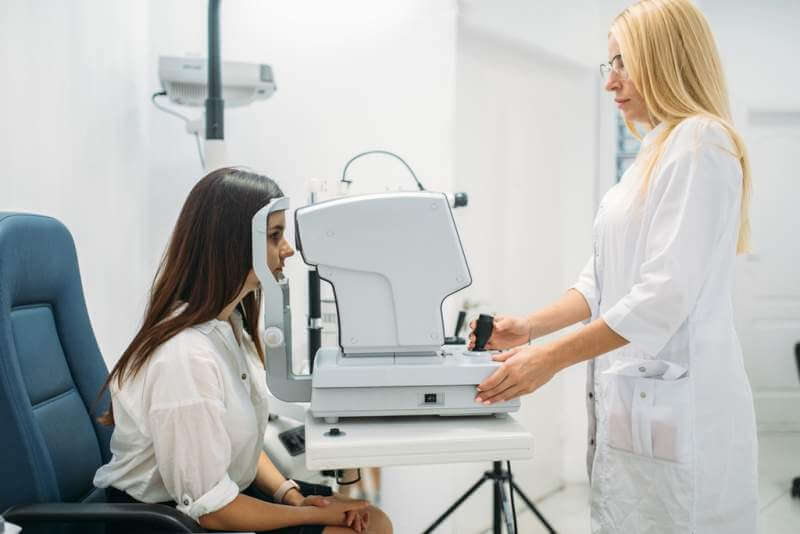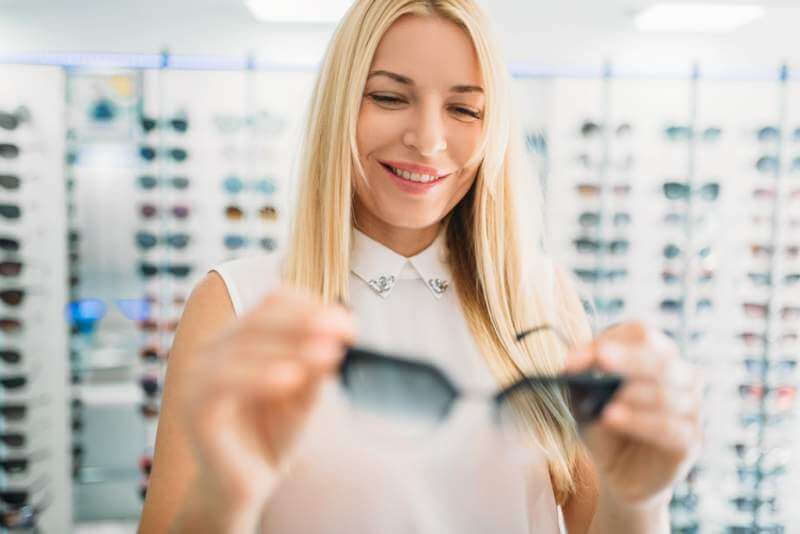Our eyesight is an incredible thing. It has developed over millions of years to allow us to easily get around and visually identify people and items around us with ease. Losing your eyesight or suffering from degrading vision, can have an overwhelmingly negative effect on your life and it’s a risk that can happen to anyone, particularly those with a family history of diseases that affect their eye health.
Genetic eye diseases aren’t the only thing that can cause a person to lose their vision however, and an unhealthy diet and lifestyle can lead to eye problems in addition to increasing the risk of diseases with side-effects that affect the eyes such as diabetes. Diabetes is one of the causes of cataracts, a clouding of the lens of the eye and is also commonly seen in older generations. Cataracts can cause problems for any person used to healthy vision but is particularly harmful for the elderly who use reading as a social connection such as Book Clubs and religious Bible and Quran readings.
Of course, while eating well and exercising regularly make up the basics of a healthy lifestyle, there are certain things you can do to directly ensure the good health of eyes including;
Protect Your Eyes From UV
 Sunglasses should be a staple accessory anytime the sun is out, as the damage UV light can do to our eyes is not easy to see but is irreversible without medical aid. Not only does increased exposure to intense UV light raise the risk of cataracts but it leads to macular degeneration which affects our ability to recognise faces, read and other tasks that require recognition of visual details. Make sure to wear sunglasses during the day, especially when the sun is at its highest, and invest in a quality pair that offers guaranteed 98%-99% UVA/UVB ray protection in addition to wraparound lenses that protect the sides of your eyes.
Sunglasses should be a staple accessory anytime the sun is out, as the damage UV light can do to our eyes is not easy to see but is irreversible without medical aid. Not only does increased exposure to intense UV light raise the risk of cataracts but it leads to macular degeneration which affects our ability to recognise faces, read and other tasks that require recognition of visual details. Make sure to wear sunglasses during the day, especially when the sun is at its highest, and invest in a quality pair that offers guaranteed 98%-99% UVA/UVB ray protection in addition to wraparound lenses that protect the sides of your eyes.
Avoid Eye Strain With the 20-20-20 Rule
 Especially important for computer users or those who have to frequently stare at monitors for long periods, the 20-20-20 rule is a simple technique used to prevent eye strain, blurry vision and headaches. Every 20 minutes of monitor use, stare at an object at least 20 feet away from you for a period of 20 seconds, simple! In addition to taking a 10-15 minute to stretch your legs every 2 hours, you can prolong the comfort of both your eyes and your back!
Especially important for computer users or those who have to frequently stare at monitors for long periods, the 20-20-20 rule is a simple technique used to prevent eye strain, blurry vision and headaches. Every 20 minutes of monitor use, stare at an object at least 20 feet away from you for a period of 20 seconds, simple! In addition to taking a 10-15 minute to stretch your legs every 2 hours, you can prolong the comfort of both your eyes and your back!
Eat Right with Greens and Fatty Fish
 Carrots aren’t the only vegetables that are good for your eyes, leafy greens such as spinach, collard vegetables and kale are some more tasty ingredients that have the benefit of keeping your eyes healthy. In addition to fatty fish such as tuna, salmon and halibut which have been shown to have high levels of the eye-enriching omega-3 fats.
Carrots aren’t the only vegetables that are good for your eyes, leafy greens such as spinach, collard vegetables and kale are some more tasty ingredients that have the benefit of keeping your eyes healthy. In addition to fatty fish such as tuna, salmon and halibut which have been shown to have high levels of the eye-enriching omega-3 fats.
Rest Well and Get Plenty of Sleep
 Good advice that can apply to every aspect of a healthy lifestyle, sleep is the key component to keeping us healthy and without it, we quickly begin to degrade in both physical and mental health. Rest well every night and aim to receive at least 6-8 hours of uninterrupted sleep, not only will this ensure you feel fresh and rejuvenated the next day in energy levels but your eyes will be refreshed of all the dirt and fatigue of the previous day as well.
Good advice that can apply to every aspect of a healthy lifestyle, sleep is the key component to keeping us healthy and without it, we quickly begin to degrade in both physical and mental health. Rest well every night and aim to receive at least 6-8 hours of uninterrupted sleep, not only will this ensure you feel fresh and rejuvenated the next day in energy levels but your eyes will be refreshed of all the dirt and fatigue of the previous day as well.
Go For Regular Eye Tests
 Medical equipment is constantly advancing and developing and professional opticians can see problems in your eyes long before they can even begin to affect your vision and noticeable eye health. It’s important to regularly go for eye tests, especially if you stare at screens on a frequent basis. Every two years is recommended however if you have a family history of eye problems, you may need to be seen more often.
Medical equipment is constantly advancing and developing and professional opticians can see problems in your eyes long before they can even begin to affect your vision and noticeable eye health. It’s important to regularly go for eye tests, especially if you stare at screens on a frequent basis. Every two years is recommended however if you have a family history of eye problems, you may need to be seen more often.
Wear Eye Protection Where Necessary
 Eye protection isn’t just limited to sunglasses on a bright, sunny day but you should always ensure to wear the correct protective eyewear depending on the task at hand. If you are working with materials that have the chance of kicking off particles and small chips, make sure to wear effectively rated safety goggles at all times, even when you aren’t necessary using certain machinery but there are still a high risk of particles in the air around you.
Eye protection isn’t just limited to sunglasses on a bright, sunny day but you should always ensure to wear the correct protective eyewear depending on the task at hand. If you are working with materials that have the chance of kicking off particles and small chips, make sure to wear effectively rated safety goggles at all times, even when you aren’t necessary using certain machinery but there are still a high risk of particles in the air around you.
Don’t Touch/Rub Your Eyes
 We do everything with our hands; holding on to rails for stability, opening doors using push panels and door handles, eating and cleaning ourselves. As a result, our hands can carry all the dirt and grime collected through the day, even when you can’t visually see it. This is often the quickest way that bacteria is spread from person to person, especially when it comes to highly contagious viruses such as colds. This dirt, grime and germs can have terrible consequences should it get into your eyes, from scratching your lens to causing diseases such as bacterial conjunctivitis. Make sure to regularly wash your hands and avoid touching or rubbing your eyes as much as possible, even when your hands are clean, so not to irritate or cause damage.
We do everything with our hands; holding on to rails for stability, opening doors using push panels and door handles, eating and cleaning ourselves. As a result, our hands can carry all the dirt and grime collected through the day, even when you can’t visually see it. This is often the quickest way that bacteria is spread from person to person, especially when it comes to highly contagious viruses such as colds. This dirt, grime and germs can have terrible consequences should it get into your eyes, from scratching your lens to causing diseases such as bacterial conjunctivitis. Make sure to regularly wash your hands and avoid touching or rubbing your eyes as much as possible, even when your hands are clean, so not to irritate or cause damage.
This can be especially important if you are a contact lens wearer and opticians recommend that you should clear your hands solely with water or a very mild soap, before drying your hands on a lint-free cloth or paper towel, to avoid small particles that may interfere with your eye health and the comfort of your contact lens.
Your eyes do so much for you, so make sure you do what you can to ensure their long good health and take care of yourself! If you are concerned about your eye health, don’t delay in talking to your doctor or a qualified optician, who will be able to check the full health of your eye, even the parts you can’t see and quickly identify potential issues that will need to be treated either immediately or in the near future. Like any health issue, the sooner you get seen, the sooner you can start treatment and the faster you will be back to full health and feeling yourself again.
